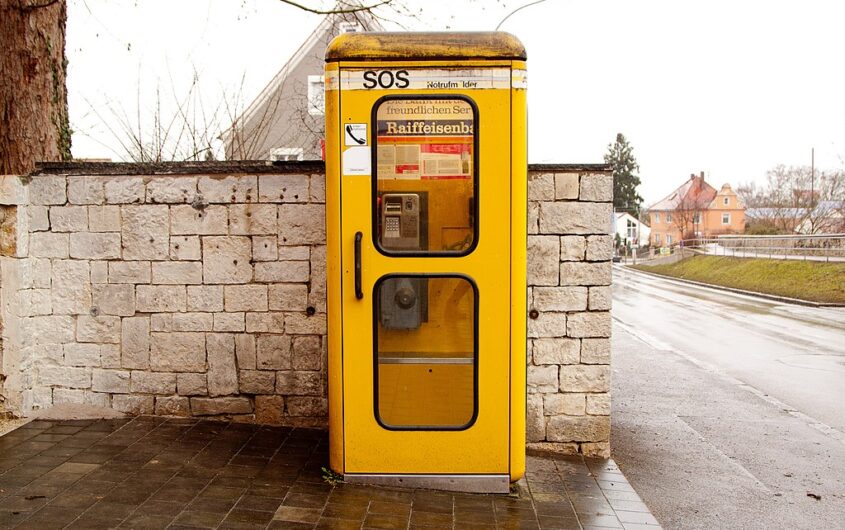
Rene Dana via Wikimedia Commons
Government is the Problem…in Germany

Henning Schroeder
University of Minnesota
Henning Schroeder is a professor at the University of Minnesota and teaches in the Department of German, Nordic, Slavic, & Dutch. He currently also serves as director of the U of M's DAAD Center for German and European Studies. He grew up in West Germany in the 1960s and 70s and received his doctorate in natural sciences (pharmacology) from Heinrich Heine University in Düsseldorf. After a postdoctoral fellowship at Stanford University in the 1980s and the fall of the Berlin Wall, he returned to Europe and joined the faculty at Martin Luther University Halle-Wittenberg in former East Germany. From 2005 to 2007, Dr. Schroeder was a visiting professor at Stanford University School of Medicine. He has been living in Minneapolis since 2007 and has held various faculty and administrative positions at the University of Minnesota including vice provost and dean of graduate education. His recent writings cover a broad range of topics in politics, culture, and history that are usually linked to current events on both sides of the Atlantic.
Anyone remember Jim Rockford’s answering machine? And those funny messages it played at the beginning of each episode? I definitely do, and, in my case, the machine spoke German. That’s because I watched The Rockford Files when they first came to West Germany during my last year of high school in 1976. And like everything else that was imported from abroad and put on a screen in Germany, Rockford was dubbed, not subtitled. Answering machines were virtually (and literally) unheard of in my home country back then. Even the German TV producers must have been fascinated by this device since they put it squarely in the title of the show: Detektiv Rockford – Anruf genügt.
If, as we are told, engineering is such a German thing, then why was the country playing technological catch-up in the 1970s and continues to play even harder today? Just listen to one of the first voice messages on Jim’s answering machine—Season 1 of the Rockford Files—and you might have the answer:
“This is the message phone company. I see you’re using our unit, now how about paying for it?”
The key word here is company. There were no phone companies in Germany in the 1970s. Everything related to telecommunication was owned by the government and run by the minister for the post office whose concern for innovation, let alone customer satisfaction, was alarmingly limited. There was exactly one rotary dial model to choose from. It came in two cheerful colors (off-white and mud green) and was only for rent, not purchase, at a steep monthly fee. Public phone booths came in yellow on the outside and often smelled like it inside. Answering machines were more or less verboten since the government feared they would lead to fewer phone calls and billable minutes. After submitting a private phone application and respectfully waiting for weeks, it had to be installed by a post office employee. Once it was up and ringing, there was no way to unplug or fully silence this hard-wired torture instrument. I remember that I stuck it in the oven when I needed peace and quiet. Luckily, I had also applied for, and was graciously granted, an extra-long cord (Deutsche Post’s answer to American cordless phones) that allowed me to send the telephone each evening into its kitchen exile.
[Scholz]’s coalition of left, liberal, and green forces was launched amid high hopes that German society would finally break out of its analog universe and go digital. However, money turned out to be tight, and the digitization project disappeared.
Ronald Reagan declared in 1981 that “government is the problem.” He should have added “in Germany.” In the United States, presidents can wreak havoc for maximally eight years; in Germany, the sky’s the limit. That Germans ended the twentieth century with phone technology from the 1950s and have been browsing through the twenty-first century, at least so far, with breathtakingly slow internet speed, has many reasons. One of them is the constitution or Grundgesetz, which allows chancellors to keep collecting terms until the officeholder’s complacency becomes so unbearable that even voters who hate nothing more than change can’t take it any longer. Angela Merkel managed to stay in office for sixteen years and towards the end she was about as interested in reform and innovation as the late Queen Elizabeth. In 2013 Merkel publicly mused that “the internet is Neuland (virgin territory) for all of us.” In fact, by 2013 the internet had been around for more than twenty years and was widely used elsewhere to digitize government services and make life easier for anyone who wasn’t living in Germany.
Ironically, there were bold plans in Germany for a nationwide fiber-optic network in the early eighties that were scrapped by another four-term chancellor who went way beyond his best-by date: Helmut Kohl. A Christian Democrat like Merkel, he preferred instead to build a massive cable TV network as a counterweight to public television, which in his mind and that of his fellow conservatives was controlled by godless leftists and progressives. So, while they are patiently waiting for broadband and e-government, Germans have at least access to an endless number of game and reality shows.
In 2021, Germany finally woke up from its Dornröschenschlaf (Sleeping Beauty slumber), which had lasted through four Merkel administrations, and put someone new in the Berlin chancellery: Olaf Scholz. His coalition of left, liberal, and green forces was launched amid high hopes that German society would finally break out of its analog universe and go digital. However, money turned out to be tight, and the digitization project disappeared as an also-ran in the budget of the federal ministry for transportation. Since Deutsche Bahn (German Rail) has become as unreliable as Annalena Baerbock’s Airbus—last month the foreign minister’s trip to Australia had to be canceled due to a government plane failure—broadband and digitization may have to wait again until other infrastructure problems are resolved. So far, the minister of transportation, a good friend of the German car industry with a libertarian streak, has been a strong defender of the “right to race” on German autobahns and is opposed to a general speed limit. Right to race? Then how about getting rid of the speed limit on the German data highway?









